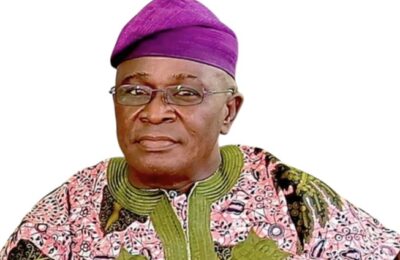In the ornate chambers of government houses and the overly-decorated offices of ministries, the phrase “His Excellency” reverberates with pomp. But beneath the gilded rhetoric lies a cold dissonance between honorifics and reality. Nigeria’s public administration suffers not from lack of structure, but from a cyclical poverty of purpose. The honorific has endured; the honour has fled.
The real question demanding urgent reflection is this: Who are public administrators in Nigeria? Are they technocrats trained to serve the public good, or political appointees masquerading as civil engineers of state? Are they custodians of public trust or self-serving agents of political rent? Ideally, public administrators are professionals charged with executing policies, managing public resources, and delivering services efficiently. But in Nigeria, this role is often distorted. Public administration has been subsumed under the weight of nepotism, tribalism, and transactional politics. As Prof. Ladipo Adamolekun once noted, “Public administration in Nigeria has not yet matured into a professional calling. It remains an appendage of the political class.”
From the local government secretariat to the Federal Executive Council, appointments are frequently based not on merit but allegiance. The Nigerian public administrator has evolved into a hybrid figure—part politician, part bureaucrat, wholly dependent on patronage. “We do not reward excellence; we reward loyalty,” lamented Prof. Pat Utomi. This systematic erosion of meritocracy is the Achilles’ heel of governance in Nigeria, infecting everything from education policy to infrastructural planning.
Even the title “Excellency”—intended as a recognition of exceptional leadership—has become a tragic misnomer. In practice, it is more operatic than functional. What was designed as a tribute to distinction now serves as a smokescreen for administrative paralysis. Instead of inspiring performance, the title has morphed into an entitlement. Kenyan political economist Calestous Juma once warned: “The gravest danger to governance in Africa is not war, but the illusion of performance.”
Take a stroll through any Nigerian city and the consequences of hollow administration are painfully visible—collapsed school buildings, unpaved roads, and malfunctioning healthcare centres. These are not accidents; they are the products of prolonged mediocrity. Governance, stripped of excellence, becomes ornamental. “Public administration is not ceremonial,” asserted Prof. Adebayo Williams. “It is the lifeline of state functionality. If it fails, everything else follows.”
Moreover, a bloated civil service structure characterized by redundancy and politicization has stifled innovation. Young, skilled Nigerians are either locked out of public service or silenced within it. Meanwhile, retirees and loyalists remain recycled in positions they no longer have the stamina or competence to handle. “The system is designed not to encourage performance, but to preserve networks of control,” said Dr. Ngozi Okonjo-Iweala, Director-General of the World Trade Organization and former Nigerian finance minister.
The disconnect between title and practice is exacerbated by a citizenry that celebrates symbolism over substance. Political campaigns focus on who shouts the loudest, not who governs the best. Public administrators thrive on this laxity, knowing that performance is secondary to perception. “A nation that rewards mediocrity will always suffer from stagnation,” observed Ghanaian scholar George Ayittey. Nigeria is no exception.
To reclaim the soul of public administration in Nigeria, we must elevate accountability above accolades. The appointment process must be depoliticized. Civil service reforms must focus not only on efficiency but on ethics. The rot cannot be cured by titles; it can only be healed by transformation. “A state is only as strong as the competence of its administrators and the integrity of its institutions,” wrote Francis Fukuyama in Political Order and Political Decay.
Ultimately, the grandeur of “His Excellency” must yield to the grit of public service. Until Nigeria begins to honour its titles through action, not appearance, the administration will remain a tragic paradox—resounding with form, but devoid of function.
– Inah Boniface Ocholi writes from Ayah – Igalamela/Odolu LGA, Kogi state.
08152094428 (SMS Only)




